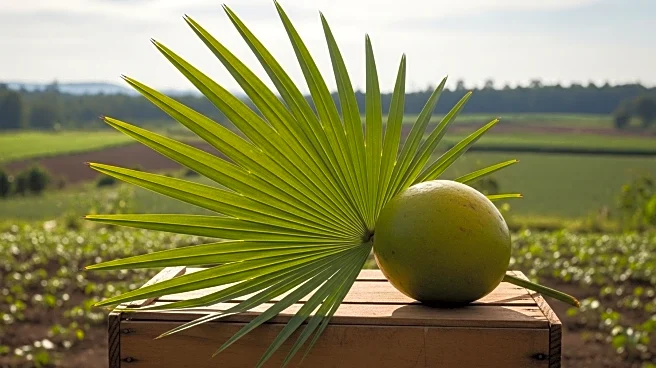What is the story about?
What's Happening?
Malaysia is taking steps to ensure its agricultural exports remain competitive in European markets in light of the European Union's new deforestation rules. The country's commodities ministry announced contingency plans to avoid being classified as a 'standard risk' country under the EU's Deforestation Regulation (EUDR). Currently, Malaysia, along with Indonesia and Brazil, is classified as 'standard risk,' which subjects 3% of its shipments to inspections. The EU regulations, set to take effect in December, apply to products such as soy, beef, palm oil, wood, cocoa, and coffee, as well as some downstream products like leather and chocolate. Malaysia's government has expressed concerns about this classification, arguing it is based on outdated data. The ministry plans to engage with industries exporting agricommodity products to Europe to ensure compliance with EU requirements.
Why It's Important?
The EU's deforestation rules could significantly impact Malaysia's agricultural export industry, which is a vital part of its economy. Being classified as a 'standard risk' country means stricter inspections and compliance checks, potentially increasing costs and reducing competitiveness in European markets. This situation underscores the importance of sustainable practices and compliance with international environmental standards. Malaysia's proactive approach in addressing these challenges reflects its commitment to maintaining its market position and supporting its agricultural sector. The outcome of these efforts could influence trade relations and economic stability, affecting stakeholders from farmers to exporters.
What's Next?
Malaysia plans to conduct engagement sessions with industries to ensure compliance with EU requirements. The Special Committee for EUDR Implementation will propose solutions for issues spanning multiple jurisdictions. The government aims to fulfill the qualitative assessment elements for the EU's country benchmarking system, potentially improving its classification. These steps are crucial for Malaysia to secure a 'low risk' status, which would ease compliance burdens and enhance its export prospects. The effectiveness of these measures will be closely watched by industry stakeholders and could set a precedent for other countries facing similar challenges.
















